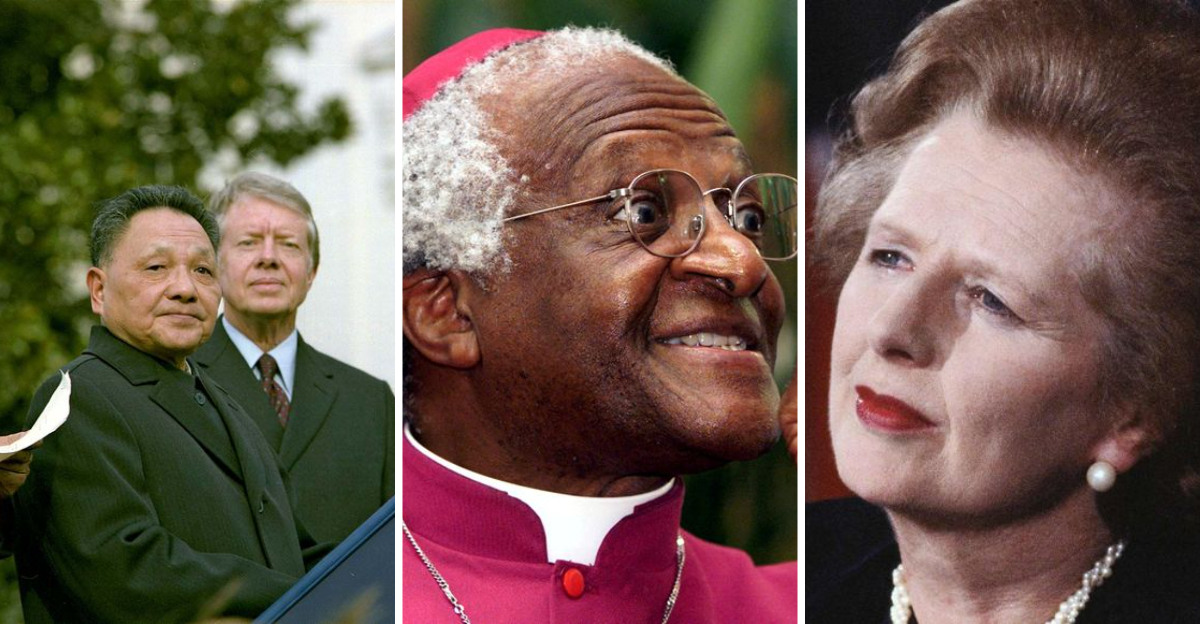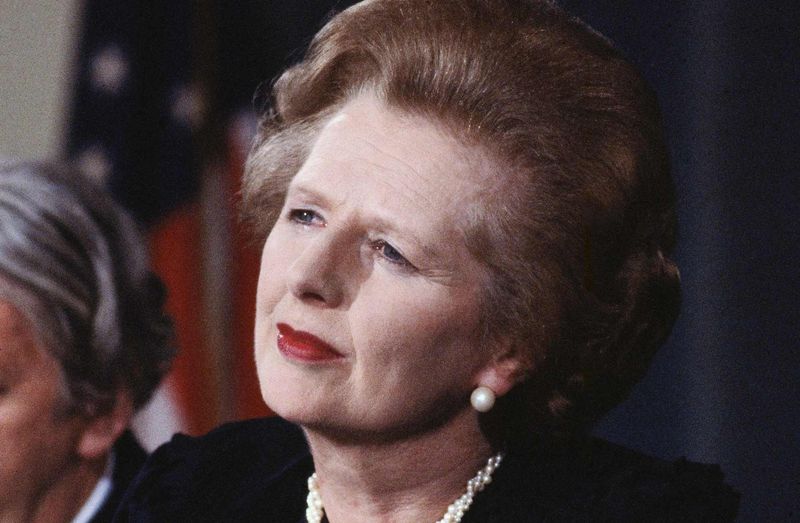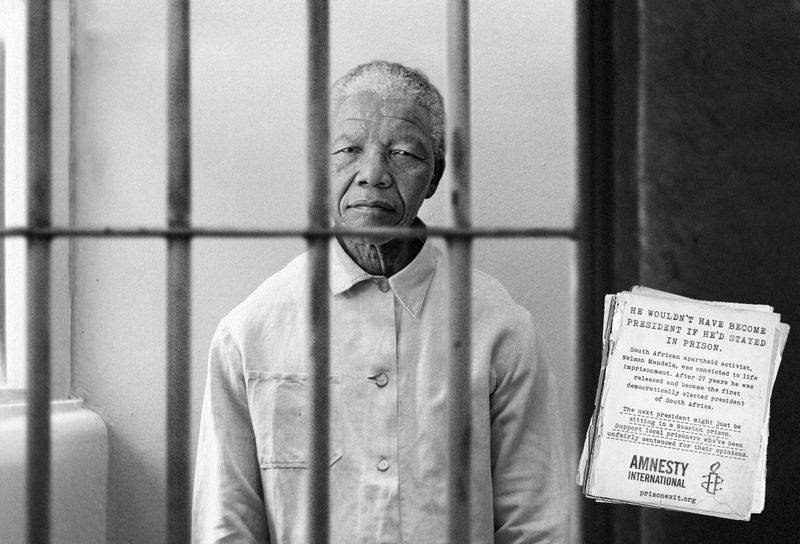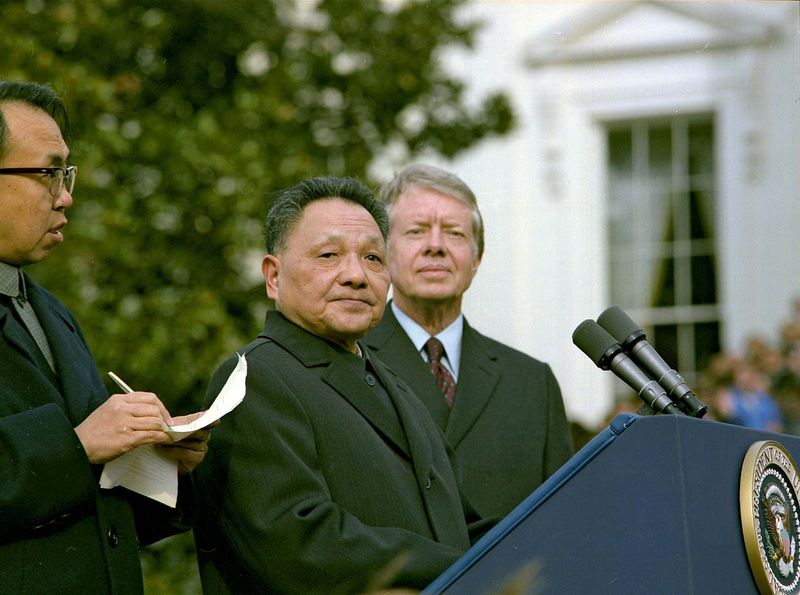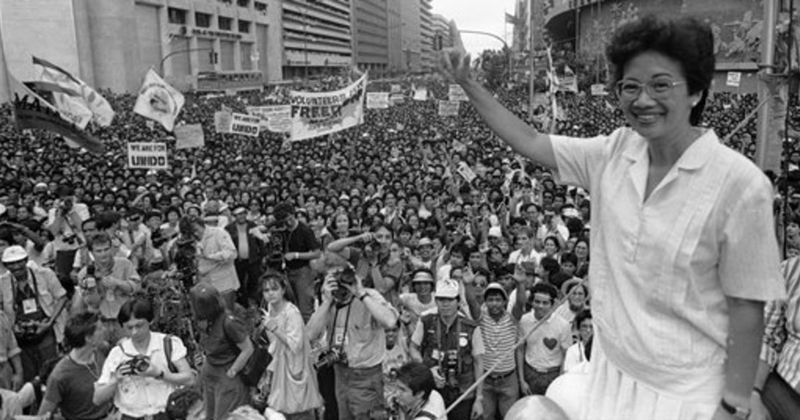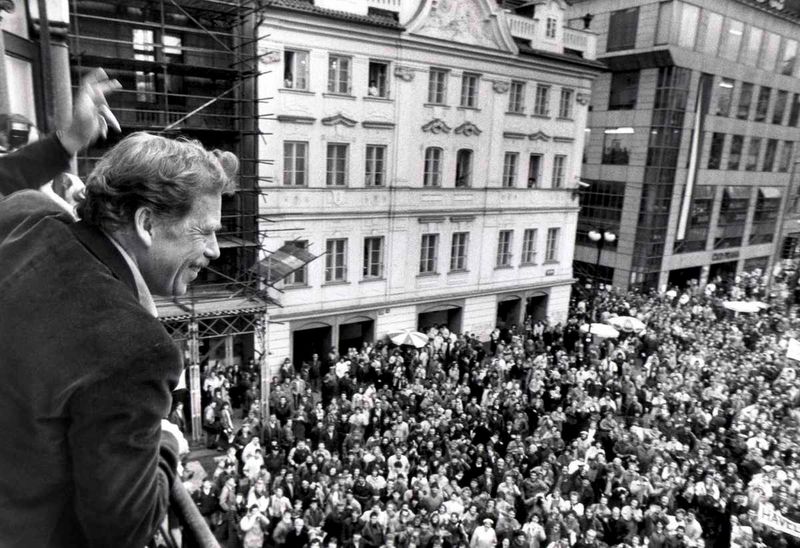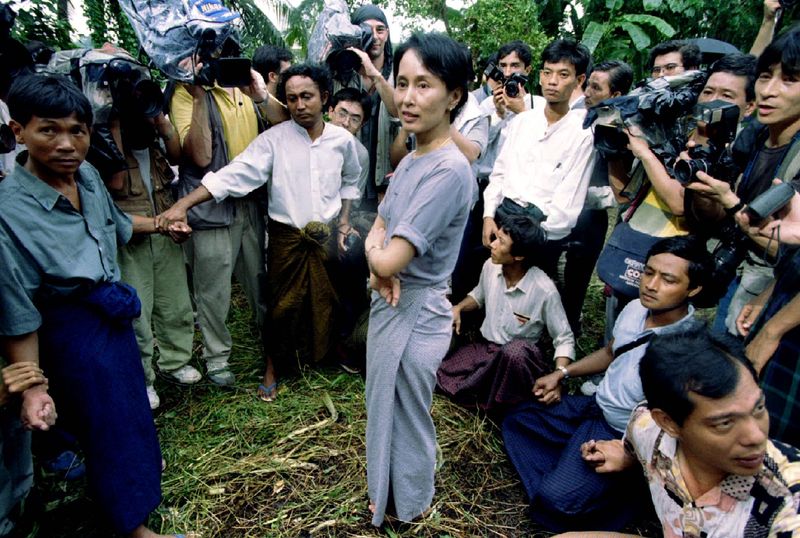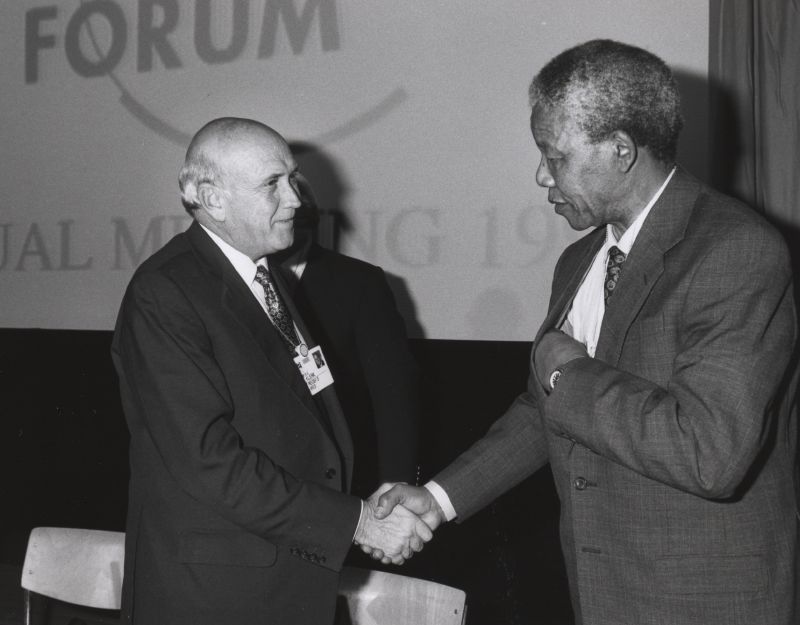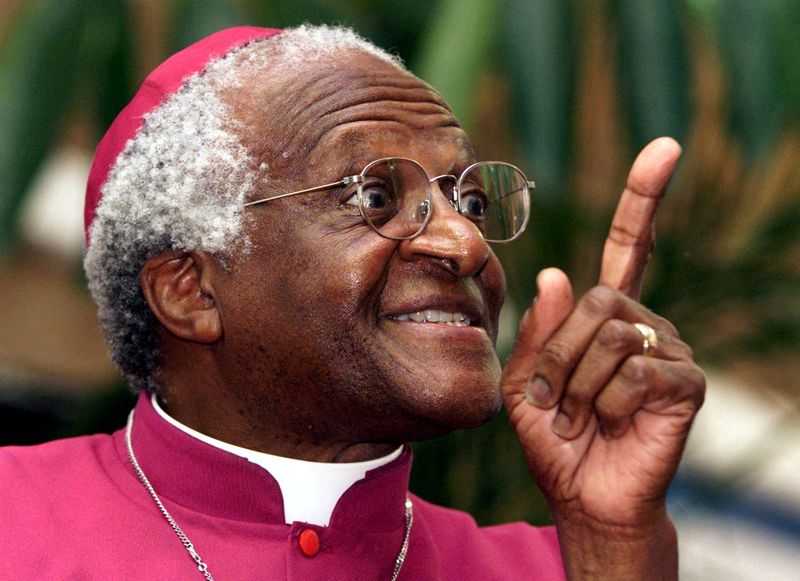The 1980s marked a turning point in global politics, with leaders emerging who would reshape nations and international relations for decades to come. From dramatic economic reforms to peaceful revolutions, these figures stood at crossroads of history, making crucial decisions that still influence our world today. Their courage to challenge established systems transformed not just countries, but entire ideologies.
1. Mikhail Gorbachev: The Soviet Reformer
The last leader of the Soviet Union shattered decades of Cold War tensions with his revolutionary policies. Gorbachev’s introduction of glasnost (openness) and perestroika (restructuring) cracked open a previously sealed society, allowing unprecedented freedoms of speech and press. Born to peasant farmers, his humble origins gave him unusual perspective on the failures of the Soviet system. When he chose cooperation over confrontation with Western powers, the world breathed a collective sigh of relief. Ironically, by trying to save communism through reform, he ultimately accelerated its collapse. His Nobel Peace Prize in 1990 recognized what many considered impossible: a Soviet leader who chose peaceful transformation over maintaining power at all costs.
2. Ronald Reagan: The Conservative Revolutionary
Former Hollywood actor turned political powerhouse, Reagan reshaped American politics with unwavering optimism and conservative principles. His economic policies, dubbed “Reaganomics,” slashed taxes and regulations while his military buildup challenged Soviet power. Standing at the Brandenburg Gate in 1987, his famous words “Mr. Gorbachev, tear down this wall!” captured the imagination of millions yearning for freedom. Despite critics who viewed him as dangerously hawkish, his willingness to engage with Soviet leadership proved crucial to easing global tensions. A master communicator nicknamed “The Great Communicator,” Reagan connected with ordinary Americans through simple, powerful language. His presidency fundamentally altered America’s political landscape, elevating conservative ideas that continue to influence Republican politics today.
3. Margaret Thatcher: The Iron Lady
Grocer’s daughter turned political powerhouse, Thatcher smashed barriers as Britain’s first female Prime Minister. Her unyielding stance during economic crises earned her the nickname “Iron Lady” – a title she embraced with characteristic determination. Thatcher’s conservative revolution privatized state industries, confronted powerful unions, and championed free-market economics. When Argentina invaded the Falkland Islands in 1982, her decisive military response shocked critics who underestimated her resolve. Love her or hate her, few remained neutral about this transformative figure. Her partnership with Reagan strengthened the “special relationship” between Britain and America while her uncompromising approach to Soviet leadership helped accelerate Cold War thawing. Thatcher’s eleven-year tenure fundamentally reshaped British society and politics.
4. Lech Wałęsa: The Shipyard Revolutionary
With his trademark walrus mustache and electrician’s credentials, Wałęsa seemed an unlikely challenger to communist power. Yet this ordinary worker sparked an extraordinary movement when he scaled the Gdańsk shipyard wall in 1980 to join striking colleagues. As leader of the independent trade union Solidarity, his courage galvanized millions of Poles against Soviet domination. Despite imprisonment during martial law, his spirit remained unbroken. The Nobel Peace Prize committee recognized his nonviolent resistance in 1983. What made Wałęsa remarkable wasn’t just his defiance but his practicality. Rather than calling for violent overthrow, he negotiated, compromised, and built bridges. His eventual election as President in 1990 symbolized Poland’s remarkable transformation from communist satellite to democratic nation – a blueprint that inspired neighboring countries.
5. Nelson Mandela: The Imprisoned Icon
Though physically confined to a prison cell throughout the 1980s, Mandela’s influence transcended concrete walls and iron bars. His steadfast refusal to renounce his principles despite decades of imprisonment transformed him from prisoner to moral compass for a nation torn apart by apartheid. Global campaigns for his release became a rallying cry for anti-apartheid activists worldwide. College campuses erupted with protests demanding divestment from South Africa while musicians recorded songs celebrating his courage. From Robben Island, Mandela’s invisible hand guided the African National Congress through its most challenging years. His willingness to study Afrikaans and understand his oppressors hinted at the reconciliation philosophy that would later define his presidency. Few leaders have accomplished so much while physically removed from public life.
6. Deng Xiaoping: The Pragmatic Reformer
Standing barely five feet tall, Deng cast a giant shadow over China’s transformation from isolated communist state to economic powerhouse. His famous philosophy – “It doesn’t matter whether a cat is black or white, as long as it catches mice” – perfectly captured his practical approach to governance. Twice purged during Mao’s Cultural Revolution, Deng’s remarkable comeback culminated in his emergence as China’s paramount leader by 1978. His bold economic experiments created Special Economic Zones where capitalism could flourish within a communist system. Foreign visitors were astonished to see this committed communist enthusiastically donning a cowboy hat during his 1979 American tour. Though politically conservative, his economic pragmatism unleashed entrepreneurial energy that lifted hundreds of millions from poverty. Modern China’s economic miracle began with his willingness to experiment.
7. Corazon Aquino: The Reluctant Revolutionary
Yellow became the color of revolution when this soft-spoken housewife challenged a dictator following her husband’s assassination. Aquino never sought political power – her background was raising children and supporting her politician husband Ninoy, not leading a nation. Ferdinand Marcos’ brutal 20-year regime seemed unshakable until Aquino became the face of the People Power Revolution. Millions of Filipinos flooded Manila’s streets in 1986, placing their bodies between military tanks and their unlikely champion. Her presidency faced multiple coup attempts and devastating challenges, yet her greatest achievement was restoring democratic institutions after years of dictatorship. The woman once dismissed as merely a “housewife” demonstrated that moral authority sometimes proves more powerful than military might. Her peaceful transition to power became a model for democratic movements worldwide.
8. Václav Havel: The Playwright President
Words were Havel’s weapons against communist oppression in Czechoslovakia. This dissident playwright spent multiple prison terms for his outspoken criticism of the regime, writing influential essays on truth and power between jail sentences. His leadership of the Civic Forum during 1989’s Velvet Revolution demonstrated how intellectual courage could overcome entrenched political systems. Students chanting his name filled Wenceslas Square as the communist government crumbled without a shot fired. From prison cell to presidential castle took just six weeks – perhaps the most remarkable political journey of the decade. As president, Havel brought philosophical depth to politics, questioning materialism and advocating for “living in truth.” His rumpled suits and literary sensibilities contrasted sharply with typical politicians, yet his moral authority helped navigate his country through challenging post-communist transitions.
9. Aung San Suu Kyi: The Daughter of Democracy
Oxford-educated and soft-spoken, Suu Kyi returned to her native Burma in 1988 to nurse her ailing mother. This personal journey unexpectedly thrust her into leadership of a massive pro-democracy uprising against military dictatorship. Her magnetic speeches drew hundreds of thousands despite never raising her voice. When the military crushed protests and placed her under house arrest in 1989, they created a martyr whose moral authority only grew stronger in confinement. Separated from her husband and children in England, she refused offers to leave Burma, knowing the junta would never allow her return. Her sacrifice resonated globally – a petite woman armed only with unwavering principles facing down generals with guns. Though her later political career proved controversial, her 1980s resistance inspired democracy movements across Southeast Asia.
10. F.W. de Klerk: The Unexpected Reformer
History rarely remembers the dismantlers of unjust systems, yet de Klerk deserves recognition for his crucial role in ending apartheid. Born into the heart of Afrikaner nationalism, this conservative politician seemed an unlikely champion for racial equality. As South Africa faced mounting international sanctions and internal unrest throughout the 1980s, de Klerk rose through party ranks. His surprise announcement in February 1990 unbanning the African National Congress and releasing Mandela shocked supporters and critics alike. Unlike many entrenched leaders, he recognized the moral bankruptcy and unsustainability of white minority rule. Though his motivations combined pragmatism with principle, his willingness to negotiate power transfer prevented potential civil war. His shared Nobel Peace Prize with Mandela in 1993 acknowledged his essential role in South Africa’s peaceful transition.
11. Desmond Tutu: The Laughing Archbishop
Wrapped in purple robes and armed with an infectious laugh, Tutu confronted apartheid’s brutality with surprising weapons: humor, forgiveness, and moral clarity. As Anglican Archbishop of Cape Town, his religious authority provided crucial protection for anti-apartheid activism throughout the 1980s. While Mandela remained imprisoned, Tutu became apartheid’s most visible opponent. His 1984 Nobel Peace Prize brought international attention to South Africa’s struggle. Government officials dismissed him as a “clown” – missing how his characteristic giggle disarmed tensions in explosive situations. Tutu’s concept of “Ubuntu” – the belief that humanity is bound together in mutual interdependence – offered an alternative to vengeful politics. His leadership of the Truth and Reconciliation Commission later provided a revolutionary model for healing divided societies. Few religious leaders have so effectively translated spiritual principles into political transformation.
12. Benazir Bhutto: The Dynasty Daughter
Harvard and Oxford educated, Bhutto returned to Pakistan in 1986 to challenge military dictatorship following her father’s execution. Thousands lined streets to glimpse this charismatic 33-year-old woman who dared confront General Zia’s regime. Her 1988 election victory shattered barriers as she became the first female prime minister of any Muslim-majority nation. Governing proved challenging – caught between military power, religious conservatives, and corruption allegations, her reforms faced constant obstruction. Critics noted the contradiction between her progressive rhetoric and political compromises. Yet her very existence as a female leader in a deeply patriarchal society challenged fundamental assumptions about women’s capabilities. Though later assassinated in 2007, her 1980s emergence represented a democratic opening in Pakistan that inspired women across the Muslim world to pursue political leadership.
13. Oscar Arias Sánchez: The Peacemaker
Small in stature but enormous in diplomatic influence, Costa Rica’s president emerged as Central America’s unexpected peacemaker during the region’s bloodiest decade. While neighboring countries drowned in civil wars fueled by Cold War rivalries, Arias proposed a radical alternative: dialogue. His 1987 peace plan – crafted despite U.S. opposition – provided a framework for ending conflicts that had claimed over 200,000 lives across Nicaragua, El Salvador, and Guatemala. The Nobel Committee awarded him their Peace Prize that same year, recognizing his moral courage in challenging superpower interference. Arias embodied Costa Rica’s exceptional status as a democracy without a military. His famous quote – “A country without an army has no enemies” – reflected the alternative vision he offered a region accustomed to militarized solutions. His success demonstrated how smaller nations could shape international relations through moral leadership rather than military might.
